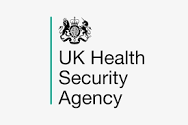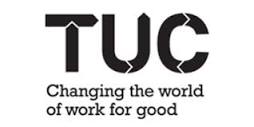PRESS RELEASE : The UK’s commitment to the UN Development System remains unquestionable – UK Statement at the UN Second Committee [November 2024]
The press release issued by the Foreign Office on 27 November 2024.
Statement by Shadi Fathizadeh, Head of Humanitarian, Peacebuilding and UN Funds and Programmes at the UN Second Committee on the Quadrennial Comprehensive Policy Review.
Colleagues, I would like to begin by thanking the Second Committee Bureau, the Swiss facilitator’s team, and all negotiators from other delegations.
The Quadrennial Comprehensive Policy Review has been a long, complex, negotiation. But the fact we have a resolution today – which represents for the most part a negotiated outcome – is an achievement to be celebrated and a testament to the value we all place on this important text.
Chair, with 6-years to 2030, the UK approached this negotiation firmly of the view that this QCPR had to deliver a step change in ambition. It needed to ensure that the UN development system is best positioned to support countries deliver their development plans and accelerate achievement of the Sustainable Development Goals, towards a world free from poverty, on a liveable planet.
The UK welcomes the text as it sets clear guidelines towards a more impactful, coordinated, and efficient system.
We are pleased the QCPR reaffirms the vital role of UN Resident Coordinators in supporting countries achieve their development goals, and ensure coherence of UN development activities in-country. At a time when funding for the RC system is being negotiated, this sends a clear signal to the fifth committee on the importance of finding a sustainable, predictable solution this year.
We also welcome the new language on science and technology. This establishes important system-wide principles to ensure both the opportunities, and the risks presented by technological and scientific advances, are managed in a way that ensures all can benefit.
Inevitably perhaps in a text of such ambitious breadth, there are areas where we assess the text falls short.
Interlinkages and interdependencies between climate, nature and development are increasingly clear. This cannot be disputed. The impacts of climate change, which are predicted to put an extra 100 million people at risk of being pushed into extreme poverty by 2030, will not be addressed without different approaches from the UN development system.
We have been clear throughout the negotiations that rather than – and to avoid – duplicating existing UN processes, an effective response requires the further mainstreaming of climate and environment across the work of the development system.
Similarly, against the backdrop of rising global conflict and growing humanitarian need, we consider the text insufficiently ambitious in recognising the benefits that would arise from adopting joint approaches across humanitarian, development and peace strands. Building nexus approaches delivers the best chance of overcoming root causes and delivering long term, sustainable development including achieving the SDGs.
The UK further regrets the text’s weak language on gender, including sexual and reproductive health and rights. Poverty is not gender neutral. Progress must be made in this critical area and Member States need to ensure that we do not condemn certain groups within society to a more difficult path out of poverty.
It is now imperative that this resolution is implemented.
As noted in the QCPR, the UK acknowledges that not every action should fall to the entities of the UN Development System. As a leading donor, we recognise our responsibility to avoid over-burdening the system by setting unnecessary requirements.
I am pleased to note that discussions are already taking place between the UN and the UK to develop a template for a consistent approach for core funding Memoranda of Understanding, and we will look to build on this to explore where we can further streamline requirements. We encourage other donors to do likewise.
The UK’s commitment to the UN Development System remains unquestionable. We will continue to work in close partnership, here in New York including through governing bodies, in other UN offices, and on the ground, to deliver this important mandate.


